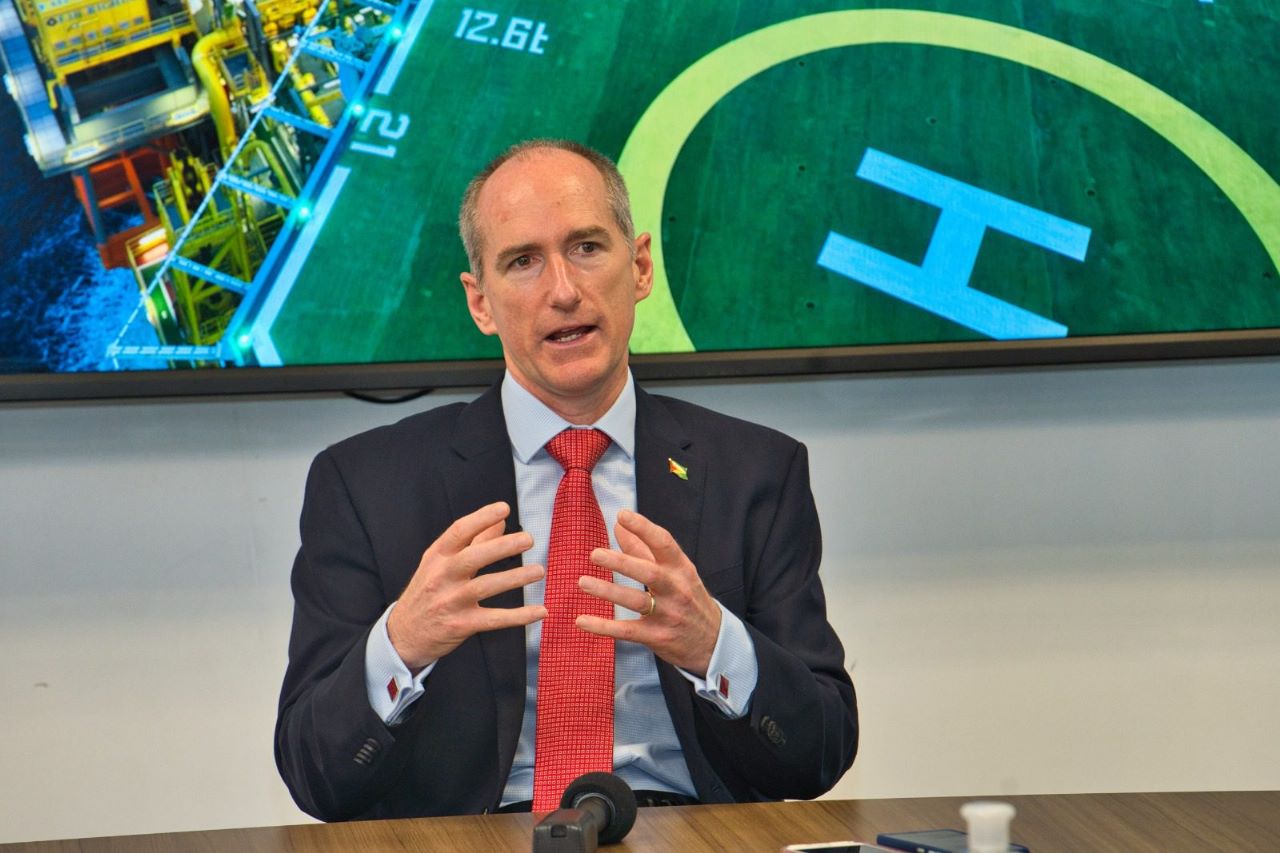Guyana can expect a significant spike in its oil revenues as early as 2026/2027 after the ExxonMobil-led Stabroek Block consortium (Exxon 45%, Hess 30% and CNOOC 25%) substantially recovers the tens of billions invested in exploration and development of offshore resources.
With billions expected annually for the country’s Natural Resource Fund (NRF) through royalty and profit oil, last year’s US$1.617 billion total deposit will just be a fraction of what the South American country is set to receive.
The cost recovery mechanism of the Stabroek Block production sharing agreement (PSA) allows the consortium to allocate 75% of oil produced towards recouping their expenses. In addition to a 2% royalty, Guyana receives 50% profit oil. The other half goes to Exxon, Hess and CNOOC.
ExxonMobil Guyana President, Alistair Routledge says notwithstanding market uncertainty, the current cost recovery percentage is expected to reduce.
“There is a fair degree of uncertainty but in a reasonable range of oil prices even as early as 2026, 2027, we’ll no longer need the full 75% of that limit,” Routledge told reporters at a Feb. 6 press conference. “We’ll no longer be cost recovering at that level – what we would call going cost current. And so more and more of the revenues from crude sales will go back to profit instead of cost recovery.”
Guyana Oil & Gas: What to look forward to in 2024 | OilNOW
Routledge provided insights into the current dynamics of the cost recovery, stating, “To date, on a total basis, we’ve invested – in our own numbers – US$29 billion in Guyana. Of the US$29 billion, we’ve recovered about US$19 billion to date, since the start of operations in 2019.”
This leaves approximately US$10 billion to be recovered, though Exxon and its partners have more investments to make. They are currently developing the US$10 billion Yellowtail project, the US$12.7 billion Uaru project, and plan to embark on the US$12.9 billion Whiptail project once approval is granted in the first quarter of 2024. These projects are expected to deliver first oil in 2025, 2026, and 2027 respectively, expanding production by a collective 750,000 barrels per day (b/d). Exxon is also actively exploring for more oil and gas deposits offshore.
While these investments are massive, the increase in production levels at Stabroek Block is multiplying the rate of cost recovery. The current production rate, according to Exxon, is 645,000 barrels per day (b/d) from Liza-1, Liza-2, and Payara. This production is expected to double, surpassing 1.2 million barrels per day by 2027.
| Year | Oil Production (barrels) | Approximate Cost Recovery (USD) |
| 2020 | 27.2 million | 0.6 billion |
| 2021 | 42.7 million | 2 billion |
| 2022 | 101.3 million | 7.4 billion |
| 2023 (Est.) | 142.8 million | 8.7 billion |
| 2024 (Proj.) | 202.0 million | 12.6 billion |
Discussions about the level of revenues flowing into the oil fund recently intensified after the government decided to reform the NRF Act, allowing higher annual withdrawals from the fund. The fund ties annual withdrawals to inflows from the preceding year. Therefore, more inflows to the fund in one year leaves more available for the government to withdraw to support its national development priorities.
While the government considers the current annual inflows to still be modest relative to Guyana’s development needs, Vice President Bharrat Jagdeo said the expansion in annual inflows will allow Guyana to spend for its needs and save for intergenerational equity.



